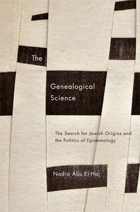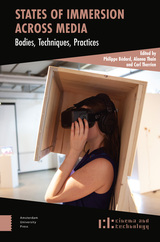2 books about Abu El-Haj, Nadia

Facts on the Ground
Archaeological Practice and Territorial Self-Fashioning in Israeli Society
Nadia Abu El-Haj
University of Chicago Press, 2002
Archaeology in Israel is truly a national obsession, a practice through which national identity—and national rights—have long been asserted. But how and why did archaeology emerge as such a pervasive force there? How can the practices of archaeology help answer those questions? In this stirring book, Nadia Abu El-Haj addresses these questions and specifies for the first time the relationship between national ideology, colonial settlement, and the production of historical knowledge. She analyzes particular instances of history, artifacts, and landscapes in the making to show how archaeology helped not only to legitimize cultural and political visions but, far more powerfully, to reshape them. Moreover, she places Israeli archaeology in the context of the broader discipline to determine what unites the field across its disparate local traditions and locations.
Boldly uncovering an Israel in which science and politics are mutually constituted, this book shows the ongoing role that archaeology plays in defining the past, present, and future of Palestine and Israel.
Boldly uncovering an Israel in which science and politics are mutually constituted, this book shows the ongoing role that archaeology plays in defining the past, present, and future of Palestine and Israel.
[more]

The Genealogical Science
The Search for Jewish Origins and the Politics of Epistemology
Nadia Abu El-Haj
University of Chicago Press, 2012
The Genealogical Science analyzes the scientific work and social implications of the flourishing field of genetic history. A biological discipline that relies on genetic data in order to reconstruct the geographic origins of contemporary populations—their histories of migration and genealogical connections to other present-day groups—this historical science is garnering ever more credibility and social reach, in large part due to a growing industry in ancestry testing.
In this book, Nadia Abu El-Haj examines genetic history’s working assumptions about culture and nature, identity and biology, and the individual and the collective. Through the example of the study of Jewish origins, she explores novel cultural and political practices that are emerging as genetic history’s claims and “facts” circulate in the public domain and illustrates how this historical science is intrinsically entangled with cultural imaginations and political commitments. Chronicling late-nineteenth- to mid-twentieth-century understandings of race, nature, and culture, she identifies continuities and shifts in scientific claims, institutional contexts, and political worlds in order to show how the meanings of biological difference have changed over time. In so doing she gives an account of how and why it is that genetic history is so socially felicitous today and elucidates the range of understandings of the self, individual and collective, this scientific field is making possible. More specifically, through her focus on the history of projects of Jewish self-fashioning that have taken place on the terrain of the biological sciences, The Genealogical Science analyzes genetic history as the latest iteration of a cultural and political practice now over a century old.
[more]
READERS
Browse our collection.
PUBLISHERS
See BiblioVault's publisher services.
STUDENT SERVICES
Files for college accessibility offices.
UChicago Accessibility Resources
home | accessibility | search | about | contact us
BiblioVault ® 2001 - 2025
The University of Chicago Press









